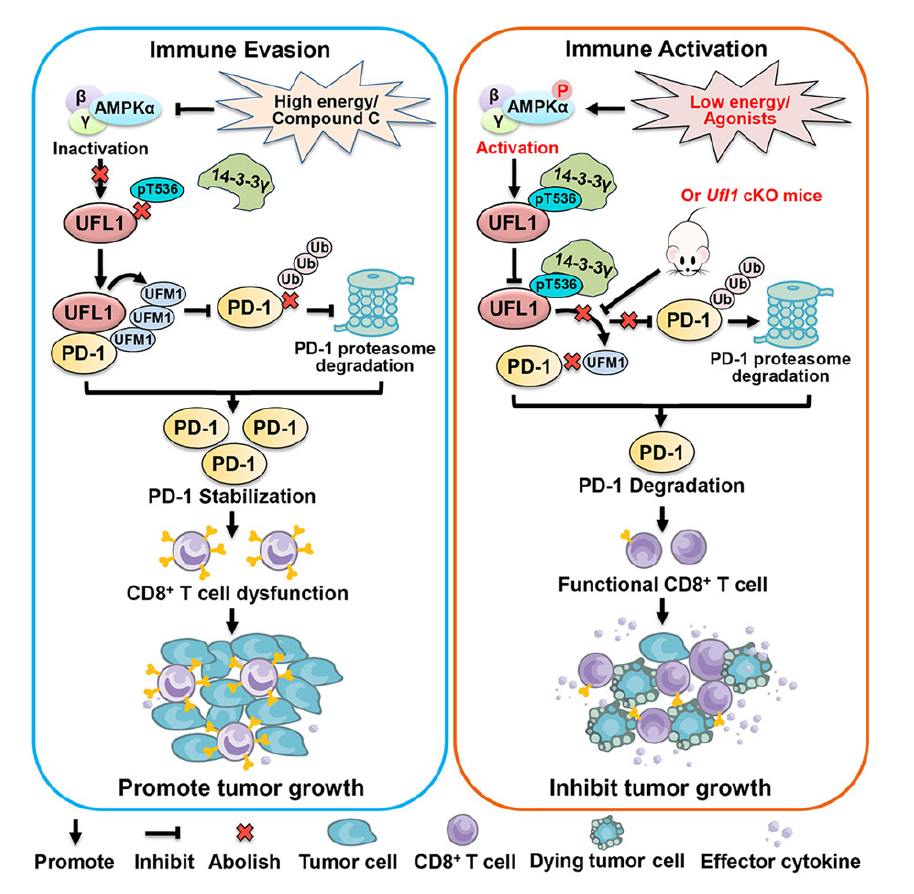Date: 2024-03-19
UFMylation is an emerging ubiquitin-like post-translational modification that regulates various biological processes. Dysregulation of the UFMylation pathway leads to human diseases including cancers. However, the physiological role of UFMylation in T cells remains unclear. A research team led by Dr. Yu-Ru Lee at the Institute of Biomedical Sciences, Academia Sinica, reported that mice with conditional knockout (cKO) Ufl1, a UFMylation E3 ligase, in T cells exhibit effective tumor control. Single-cell RNA sequencing analysis shows that tumor-infiltrating cytotoxic CD8+ T cells are increased in Ufl1 cKO mice. Moreover, UFL1 promotes PD-1 UFMylation to antagonize PD-1 ubiquitination and degradation. Furthermore, AMPK phosphorylates UFL1 at Thr536, disrupting PD-1 UFMylation to trigger its degradation. Of note, UFL1 ablation in T cells reduces PD-1 UFMylation, subsequently destabilizing PD-1 and enhancing CD8+ T cell activation. Thus, Ufl1 cKO mice bearing tumors have a better response to anti-CTLA-4 immunotherapy. Collectively, This research findings uncover a crucial role of UFMylation in T cells and highlight UFL1 as a potential target for cancer treatment. This research has been published on February 19, 2024 in Molecular Cell.
-
Link









 Home
Home

